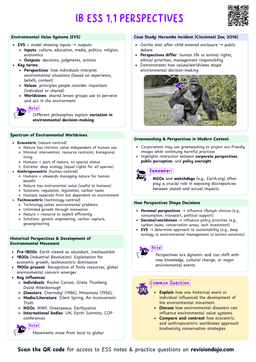Granting Legal Personhood to Natural Entities
Legal personhood
Legal personhood refers to the capacity to have legal rights, to sue, and to be sued in a court of law.
- In recent years, there has been a growing trend of granting legal personhood to natural entities such as rivers, forests, mountains, and ecosystems.
- This shift is rooted in the recognition that natural entities play essential roles in maintaining ecological balance and should be protected in the same way that individuals and corporations are.
Traditionally, personhood has been granted to humans and corporations. However, the concept is now being applied to natural entities, recognizing them as having inherent rights that must be protected under the law.
Why Grant Legal Personhood to Natural Entities?
- Stronger Environmental Protection:
By granting legal personhood to natural entities, their rights are protected more robustly than simply treating them as objects or resources. Natural entities like rivers, forests, and ecosystems can now have their own legal standing to ensure they are preserved, restored, and managed sustainably. - Sustainability and Preservation:
Legal personhood allows ecosystems to claim legal protections against exploitation, pollution, or degradation, ensuring their long-term preservation. For example, granting legal rights to rivers ensures that they can be defended from harmful projects such as dam construction or pollution that would otherwise deplete their resources.
Linking with Indigenous Knowledge and Value Systems
- Many Indigenous cultures do not recognize a clear distinction between humans and nature.
- They view the natural world as an interconnected web of life, where both humans and nature have intrinsic value and should be treated with respect and responsibility.
Indigenous Knowledge Systems:
- These knowledge systems often emphasize the spiritual, cultural, and practical relationships between humans and the environment, treating ecosystems as living entities with inherent rights and value.
Environmental Value Systems:
- Anthropocentric View: This value system views the environment primarily as a resource for human use and benefit. Anthropocentrism tends to focus on human welfare while potentially neglecting the intrinsic value of nature itself.
- Ecocentric View: In contrast, the ecocentric view recognizes the intrinsic value of ecosystems, species, and natural processes. This view promotes the idea that the environment itself has rights, just as humans and corporations have rights in the legal system.
Rights-Based (Deontological) Ethics Approach
- The rights-based approach to environmental law is rooted in deontological ethics, which emphasizes duties and rights regardless of the consequences.
- From this perspective, natural entities are seen as having inherent rights, and humans have the ethical responsibility to protect these rights.
- In this framework, nature is entitled to legal protection based on its intrinsic value, not simply its utility to humans.
- This approach aligns with ecocentrism, where nature’s well-being is seen as an end in itself, rather than a means to an end for human benefit.
Examples of Legal Personhood for Natural Entities
The Whanganui River (New Zealand)
- In 2017, the Whanganui River in New Zealand was granted legal personhood through the Te Awa Tupua Act. The river was recognized as a living entity with its own rights, and a guardian was appointed to act in its best interests. This was a direct reflection of Indigenous Māori belief systems, where the river is considered an ancestor.
The Ganges and Yamuna Rivers (India)
- In 2017, the Indian state of Uttarakhand granted legal personhood to the Ganges and Yamuna rivers. The rivers were recognized as having legal rights to life and protection, and their guardians were appointed to safeguard their welfare. Although later overturned, the decision highlighted the growing recognition of natural entities as deserving legal protection.
Challenges and Benefits of Legal Personhood for Nature
Benefits:
- Strengthened Legal Protection: Natural entities can be defended in court against exploitation and degradation. Their right to exist and thrive is legally recognized, leading to better long-term environmental protection.
- Recognition of Ecological Interdependence: Legal personhood recognizes the interconnectedness of natural systems, emphasizing the importance of preserving ecosystems as a whole.
- Empowerment of Local Communities: Indigenous groups and local communities who have deep ties to their environment can have their traditional knowledge and cultural practices acknowledged and legally upheld.
Challenges:
- Legal Complexity: Granting legal personhood to natural entities can create legal complexity, as courts must establish clear rules about how to represent and defend the rights of non-human entities.
- Enforcement Issues: Implementing and enforcing legal rights for natural entities requires robust legal systems, institutions, and mechanisms for monitoring compliance.
- Opposition from Industry: Some industries, particularly those involved in natural resource extraction, may view legal personhood for natural entities as a threat to their economic interests and may lobby against such laws.


